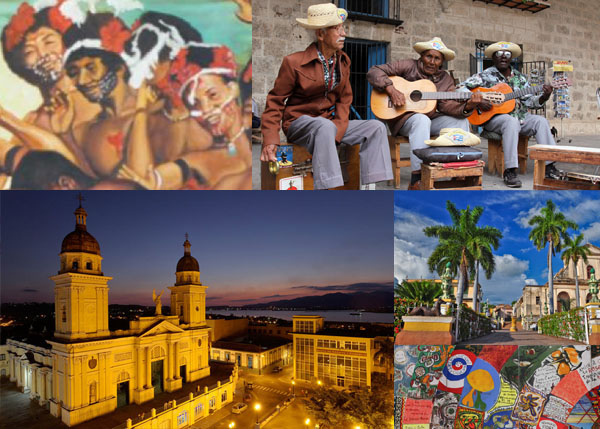2.3 Contributions of African music to Cuban music.

The contribution of Africans is decisive and valuable in the formation of Cuban nationality, being the greatest precursor to that nationality; in the musical sphere, it defines the sonic texture of what has been called and is known as Cubanidad.
When discussing the contributions of Black music to Cuban music, a challenging aspect is the drumming and the rhythmic sense of the Black race. Characteristics such as polyrhythm, the alternation of the soloist with the choir, and the close relationship between language and music, and language and drums, are unavoidable elements of analysis when discussing Afro-Cuban music, especially in Son and Rumba.
Since the 16th century in Cuba and up to the present day, Black music of African origin has undergone a profound process of musical transformation that has modified not only the formal elements but also the methods of execution, rhythmic patterns, melodic and timbral development, and harmonic harmony in Cuban music.
Of particular significance in Cuban ritual music and its secular derivatives are the prayers, songs, and chants to the orishas of contemporary Yoruba and Congo groups. Their significance in the variety of instruments, and particularly in the drums, lies in the recent incorporation of batá drums into sonero and salsero orchestras.








